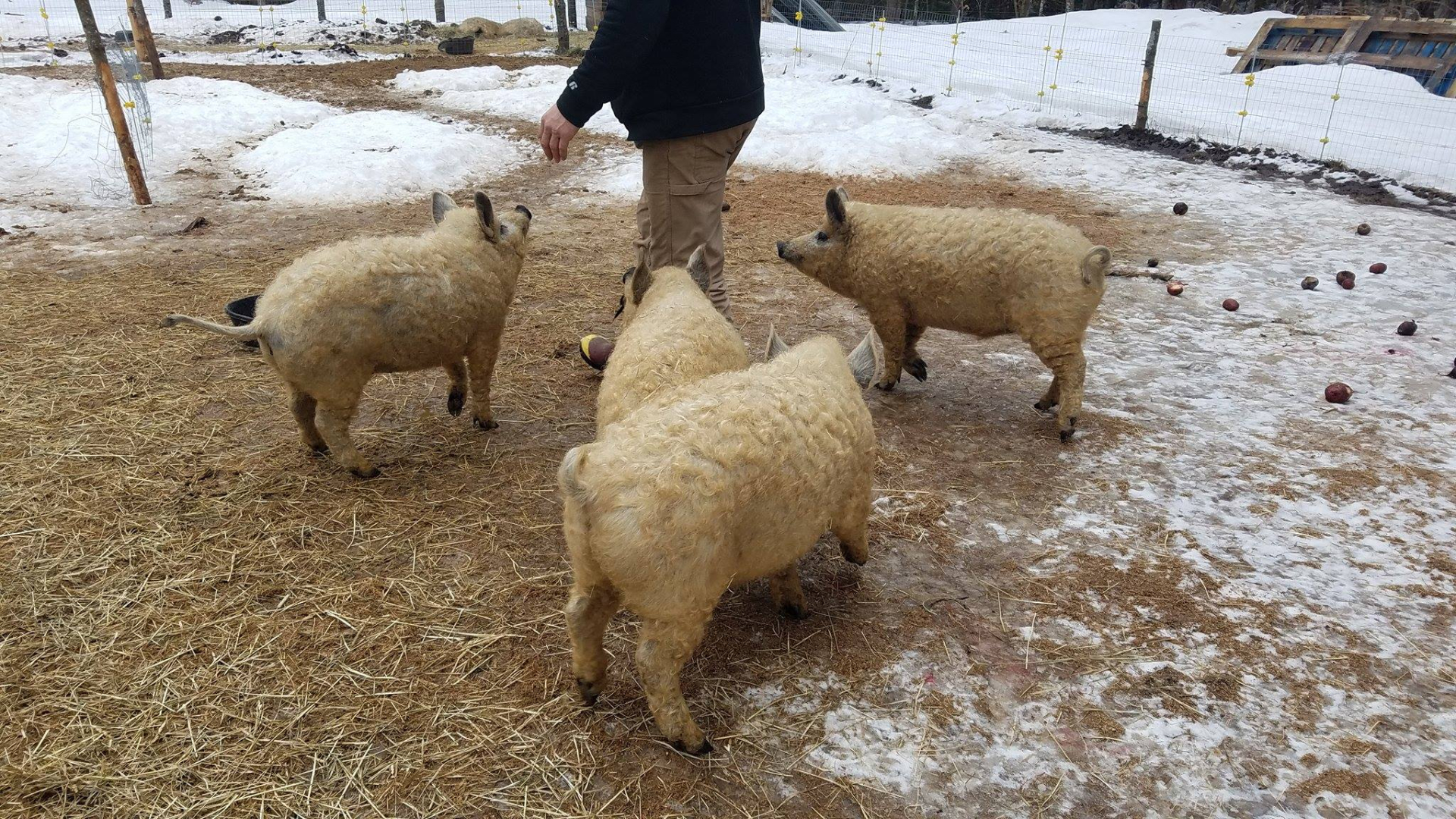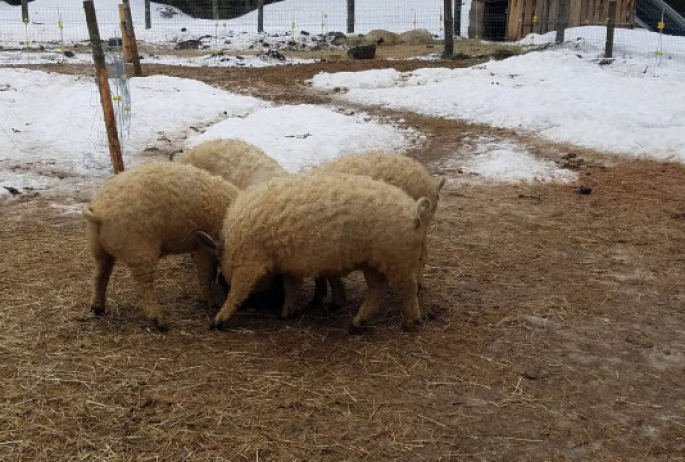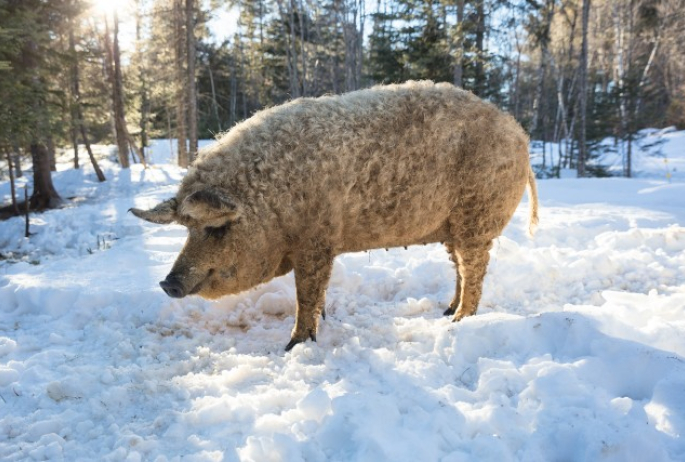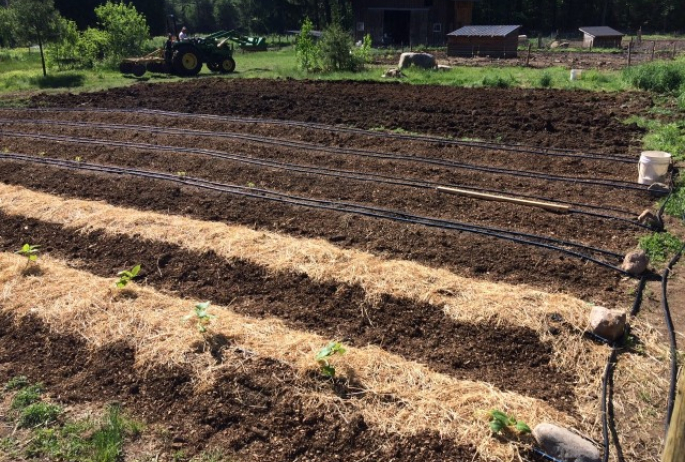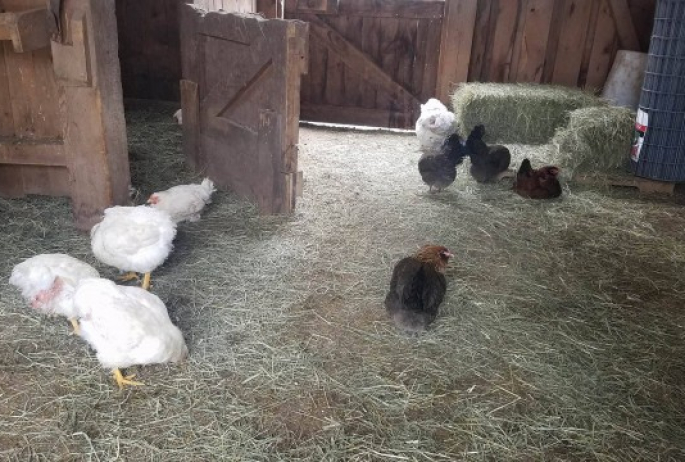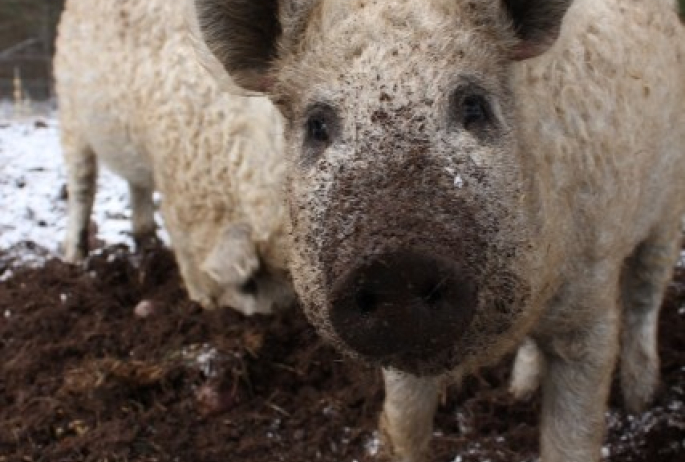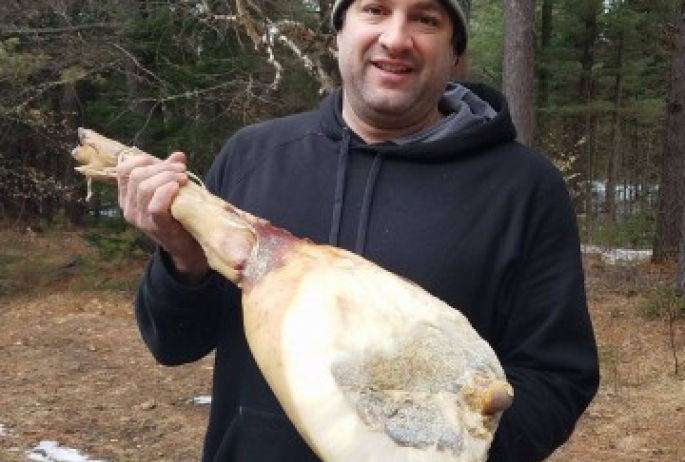Bacon. We can’t seem to live without it. Some people even have the brilliantly awesome idea of raising it. I wanted to learn more about the local farm that does just that! The Adirondack region is full of local farms, but there is one down the road from Saranac Lake that I’ve heard raises some pretty unique pigs.
Kate Mountain Farm is a 250-acre, biodiverse farm located in Vermontville, just 15 minutes from Saranac Lake. It's owned by Aaron Caiazza and Kelly Cerialo; Aaron spends most of his time tending to the farm, while Kelly is a professor in the Hospitality Department at Paul Smith’s College.
Established in 1925, Kate Mountain Farm was originally built as a hunting lodge for visitors to the region. Miles of cross-country ski trails run through the property which is nestled in the foothills of Kate Mountain. At one time the farm even housed a tennis court and shuffle board courts - some of which still remain on the property, though today they're not functional. It is currently home to pigs, chickens, turkeys, and the resident guard dog, Jacques.
The Mangalitsa
Recently my coworkers and I were discussing the topic of “bacon," and these fluffy pigs I had once seen on social media popped into my mind. Then I remembered Kelly saying, “Marj - we raise those pigs out at our farm!”
Those pigs are called Mangalitsa pigs, or as they have been dubbed, the “Adirondack Wooly Pigs.” Pronounced mahn-ga-leets-ah, they look like a cross between a sheep and a pig, but I am assured they are all pig. They have been referred to as the Kobe beef of pork, yet their heritage isn’t Japanese at all. Instead they hail from the 19th century Austro-Hungarian Empire. These pigs are royalty.
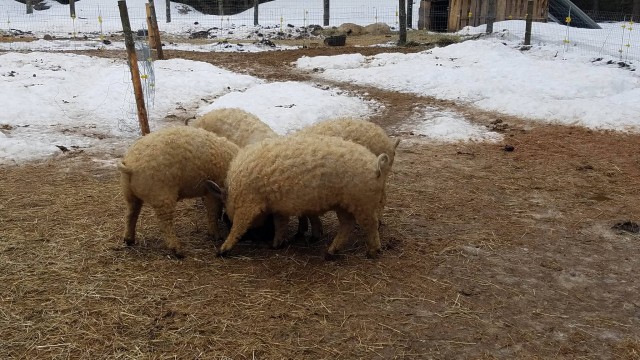
Mangalitsa pigs are relatively new to the United States, making their first appearance here in 2007. The guy that initially brought the Mangalitsas to the states is the same guy that Aaron got his from! They are very low maintenance and thrive year round. Because of their thick coats, the winters don’t have much effect on the pigs.
Fun fact: I LOVE PIGS. LOVE. PIGS. Think Oprah confessing her love for bread, this is me, but with pigs. I’m a lover of all animals, but pigs hold a special place in my heart. They always look like they’re smiling! The Mangalitsas are no different and they are FLUFFY!
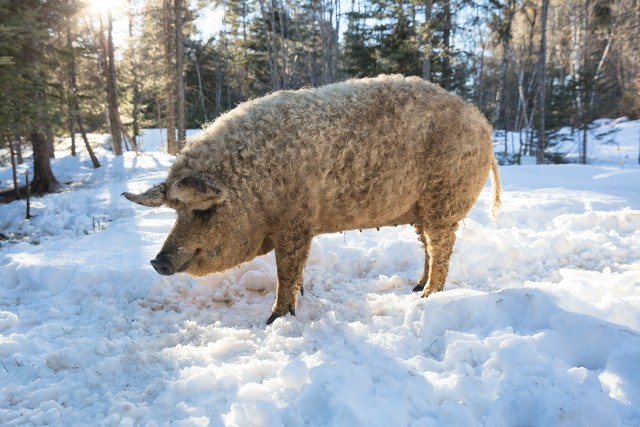
The Farm
I head out to the farm on a Tuesday morning and Jacques excitedly announces my arrival. Aaron and Steve, the farmhand, greet me. Aaron offers to take me on a tour, while Steve tends to his duties. I happily accept Aaron’s offer.
He starts with a general overview and vision of the farm. They recently added garden beds for vegetables, which took a few weeks to make. Unlike the nutrient rich, Adirondack coast soil, the soil here is tricky. It has to be cultivated just right in order for vegetable plants to survive and thrive. The garden beds will eventually be covered to add a couple more months to growing season. Aaron used to work on organic farms in Northern California, so he knows his stuff. I nod my head as he talks, trying to take in all of the valuable information and scribble down as many notes as possible.
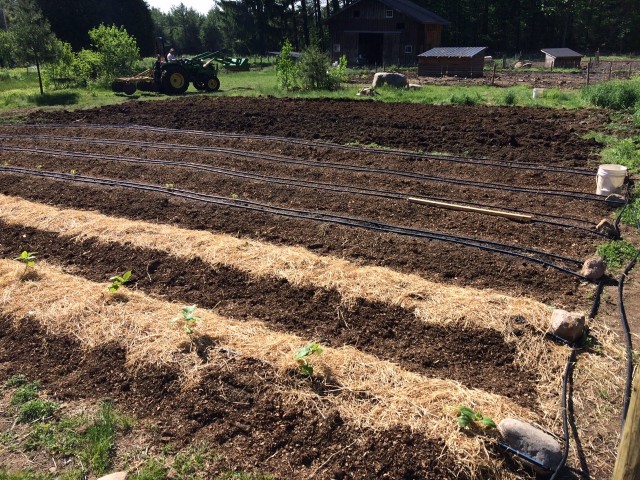
Past the garden beds are the pigs that aren’t ready for pasture yet. This includes the mother pig, Pearl, who will have another litter of piglets in a couple of weeks! Between two pens of pigs is the lone barn (for now) on the property. The barn was built from the repurposed wood that was cleared off the farm. They have a wood mill to treat the wood and make it viable building material. The barn is home to chickens and turkeys, as well as one Berkshire pig, all of which are sold for their meat. Remember those wings you had a Bitters & Bones? They most likely came from Kate Mountain Farm!
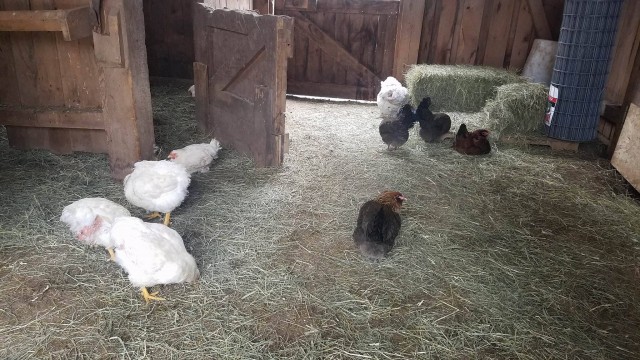
Aaron tells me that the Mangalitsa pigs work to forage and clear the land. Sure, it would be faster to bring in a bunch of machines, but using the pigs is much more sustainable, not to mention friendlier on the wallet. They work in 5-acre sections and will eventually clear enough land that grazers will be brought in, like cows and sheep. The pigs get their energy from a high fiber diet.
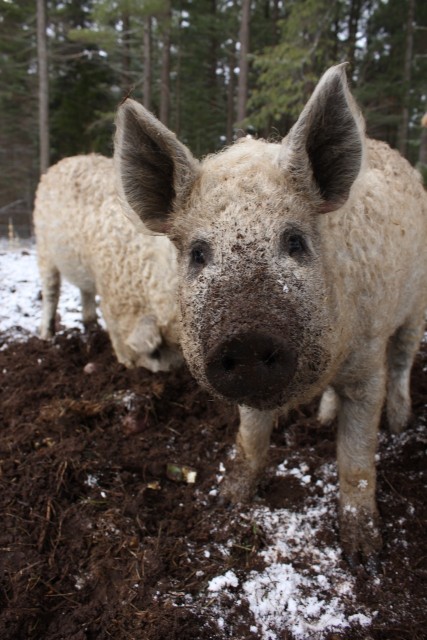
The primary vision of Kate Mountain Farm is CSA, Community Supported Agriculture, where consumers will pay the farm in advance for meat, vegetables, and any other items they produce. Another unique vision for the farm includes possible lodging for visitors that want to stay and try their hands at farming!
Currently, they sell meat to a local restaurant, Bitters & Bones, which is in downtown Saranac Lake. Bitters & Bones actually makes their own bacon from Kate Mountain’s Mangalitsa pigs. Talk about local! The meat is locally butchered and never frozen, thus never full of preservatives.
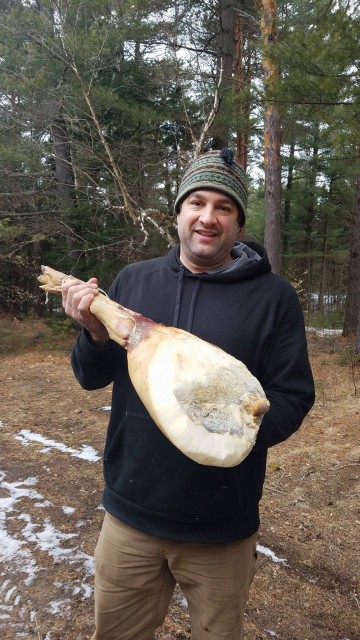
If you’re looking for something different to do while visiting Saranac Lake, give Aaron and Kelly a call to set up a farm tour at 518-891-2940.
